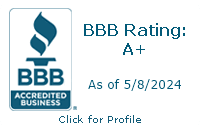What's your budget for the one thing most likely to improve employee engagement - your time?

My son recently received an offer to work at a larger civil engineering company. While the position did provide a 7% higher salary than his current one, a good signing bonus, and better benefits, the company did have at least one key expectation not written into his offer letter - they expected their engineers to work 46 hours a week, or about 15% overtime, versus about 5% overtime at his current employer.
Despite the likelihood of making slightly less on a per-hour basis, my son nonetheless took the job. Why? He said he believed it would be a better place to work.
What Made It a Better Place to Work?
Most of the people he met during the interview process were around his age, and they all seemed very enthusiastic to be working for this company. In fact, this company has won awards for being an excellent place to work, including placing in the top 20 on the 2020 FORTUNE 100 Best Companies to Work For list. The company's press release announcing this award including the following:
This year, 85% of the evaluation was determined by employee reports on their ability to reach their full potential—both personally and professionally—as a member of the organization. The ranking accounted for the experiences of all employees, including women, people of color, LGBT individuals, older team members, and disabled employees.
Reaching his full potential, both personally and professionally, is something very important to my son, so I'm glad he will soon begin this new job!
The Link Between Culture and Leaders
I researched this company a bit more and found it listed on Comparably. Comparably provides tools enabling employers to routinely survey their employees and thus gauge their company culture, compensation compared to the market, and the strength of their brand as an employer. With a score of 81% across 18 different metrics, Comparably rated this company an A+ on its Company Culture. Furthermore, its CEO scored 80%, placing him in the Top 5% of CEO's for companies of similar size.
My friend, Rich Schlentz, founder of EXTRAordinary! Inc., succinctly describes the relation between leaders and culture as follows:
Leaders talk about "shifting the culture."
"Culture" is people.
People follow leaders.
These twelve words distill the critical work a leader should be doing to create a culture that benefits the company – and its employees.
"Engage 'Em or Lose 'Em"
Rich authored a wonderful short book called Your Employees Have Quit...They Just Haven't Left: Nine Fundamental Principles to Engage and Transform Your Workplace Culture. In it, he clearly describes the nine behaviors leaders need to consistently practice in order to engage employees and build a culture where people actually enjoy coming to work.
The nine behaviors are:
- Lead Thyself – Understand who you are as a leader. Accept your strengths AND your weaknesses, and feel comfortable with them. Be yourself, not a person you think others expect you to be. Take responsibility for the current state of your company culture, then determine what you need to change about yourself to improve engagement in your workplace.
- Let Them In – Take time to listen to your people. Ask them about their family, friends, and hobbies, and be willing to share the same information in return. Rich shared a quote from a speaker he had heard - "Quality time magically appears somewhere in the midst of quantity time." It is impossible to know when something you say will "stick," so improve your odds by investing time in your people. This is especially true when they go through tough times - they will always remember how you treated them, so treat them well.
- Make It Personal – Practice MBWA - Management By Walking A Go to your people, don't wait for them to come to you. Observe them working. Catch them doing something right? Praise them. See them struggling with a specific task? Ask what they need in order to do their job better.
- Take a Stand – Know what you're willing to fight for and do it. Show that commitment to those you lead. That's one thing COVID has done - show who is willing to fight to keep their people employed, even if it's at a lower pay rate to allow the company to survive.
- Seek and Ye Shall Understand – Rid yourself of the need to be right. Stop knowing answers and start asking questions. Encourage others to come to you with ideas to address issues, rather than you always providing the answers for them. This creates an informed and empowered work force - and ultimately allows you more time to work on other things.
- Watch Your Mouth – With words...less is more. Speak in a "human way," not "corporate speak." When addressing a difficult situation, don't "spin" or "sugarcoat" things. Talk straight, yet give tough truths with kindness.
- Crave Feedback – Use feedback from your employees to get yourself back on course. Feedback is sometimes unspoken, so be alert for verbal cues. If you explicitly ask for feedback, allow the person time to prepare it and get back with you.
- Have Fun – Don't take yourself too seriously, and honestly assess the level of fun in your office.
-
- For some specific ideas in this area, see my book review of Humor, Seriously: Why Humor is a Secret Weapon in Business and Life* (* And How Anyone Can Harness It. Even You.), by Jennifer Aaker and Naomi Bagdonas
- https://www.toddherman.com/personal-development/nothing-happens-until-someone-has-an-idea
- Inspire Them – Remind workers why their work and the company's work is important, Passion is infectious, so let YOUR passion "infect" your employees!
For more ideas and inspiration from Rich, please visit his blog - and be sure to sign up for his very brief (1-2 minute read) weekly e-couragement email.
Employee Engagement is Always Needed - Especially Now
In Chapter 1, Rich shares a number of statistics relating employee engagement with operational or financial results. Those statistics are from a time when competition for talent was much less intense than it is today, so applying Rich's principles is even more important now.
As employers transition from WFH (Work From Home) to RTO (Return To Office), or as they maintain some hybrid model, leaders need to ensure no one is short-changed on being engaged. People who are not engaged? They may do like my son, and move to an employer with a stronger culture and a more engaging workplace that sets higher expectations, yet offers better rewards.
Sincerely,
![]()
Todd L. Herman






